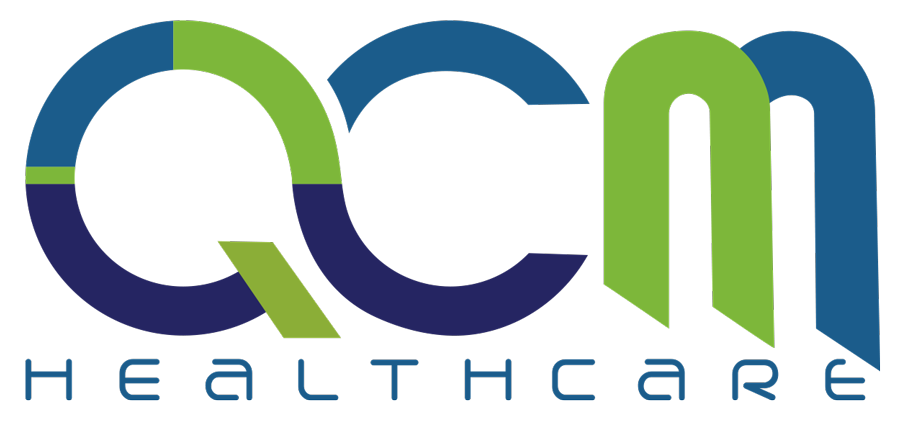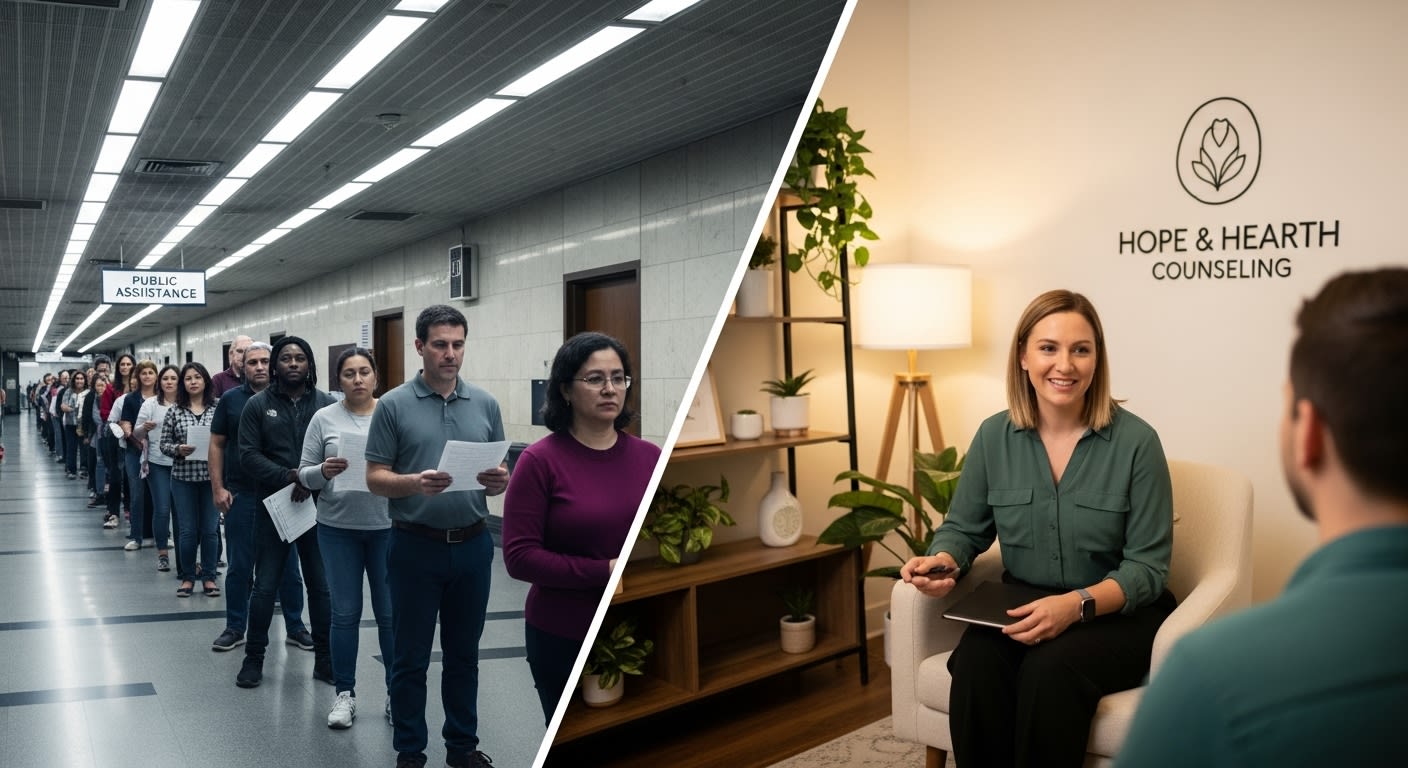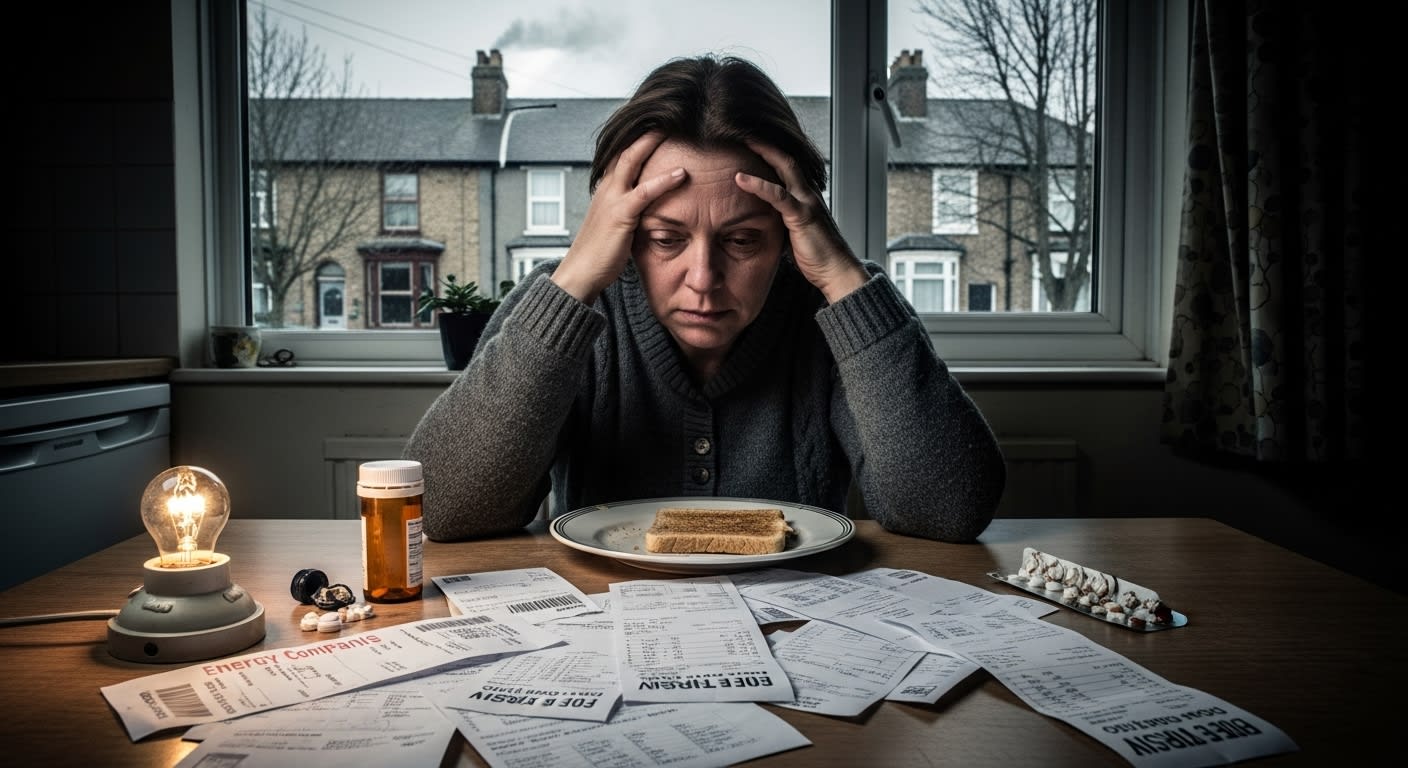Understanding Mental Health Crisis Support in the UK
Mental health is a vital part of overall wellbeing, and during times of distress, the right support can make all the difference. When a mental health crisis occurs, people often wonder which option is better, Private or NHS crisis support. QCM Healthcare understands how overwhelming this choice can feel. That’s why we’re here to guide you through the main differences, advantages, disadvantages, and costs associated with each option. Whether you need urgent help or long-term care, knowing what each system offers empowers you to make an informed decision.
The growing demand for crisis intervention services has increased significantly in recent years. As more people experience anxiety, depression, or trauma-related conditions, both NHS and private providers have stepped up efforts to offer fast, effective care. However, understanding their differences helps you find the support that best fits your needs.
The NHS and Third Sector Mental Health Crisis Services
The NHS provides a wide range of mental health crisis support services designed to be accessible for everyone. These include crisis helplines, community mental health teams, and hospital-based services. Additionally, third-sector organisations like Mind and Samaritans offer essential emotional support through helplines and drop-in centres.
One of the greatest strengths of NHS crisis support is its accessibility. Services are free at the point of use, and there’s no need for private insurance or self-payment. However, waiting times can sometimes be long due to high demand and limited staffing. This delay can be stressful for individuals in immediate need of care.
In contrast, third-sector support fills the gap when public services are overwhelmed. They often provide quick emotional help and referrals to professional services. Nevertheless, they may not offer medical treatment or therapy, which can limit recovery options.
Private Mental Health Crisis Support in the UK
Private mental health care offers a more flexible and personalised approach to crisis management. When choosing private or NHS crisis support, one of the biggest advantages of private care is speed. Patients can often access professionals within days instead of waiting weeks or months. This immediacy is crucial for those in severe distress.
Private mental health services include consultations, therapy sessions, inpatient crisis stabilisation, and medication management. Additionally, private clinics usually provide a comfortable, confidential environment that supports recovery. QCM Healthcare, for example, offers tailored mental health crisis support built around individual needs, ensuring that clients receive compassionate, timely, and effective care.
While the benefits are clear, cost remains a major factor. Private consultations in the UK can range between £100–£250 per hour, and inpatient care can cost several hundred pounds daily. Insurance may cover some of these expenses, but not all plans include mental health services. Still, many patients find the quick access and personalised attention worth the investment.
RECOMMENDED:
5 Early Signs and Symptoms of Mental Health crisis
10 Ways to Rebuild Stability After a Mental Health Crisis
Top 10 Crisis Support Companies in the UK
Comparing NHS and Private Crisis Care Options
When comparing private vs NHS crisis support, the biggest differences lie in accessibility, cost, and quality of experience. The NHS provides free, standardised care for everyone, while private services focus on individual needs, offering faster access and more consistent support.
Access speed often defines the overall experience. NHS crisis teams do their best, but waiting lists can stretch for weeks, especially in busy urban areas. In contrast, private providers like QCM Healthcare ensure immediate appointments and 24/7 helpline support, helping clients stabilise before conditions worsen.
Treatment variety also differs. The NHS focuses on evidence-based therapy models like CBT or medication management, while private care may offer holistic or integrative therapies, combining counselling with nutrition, mindfulness, and lifestyle interventions. This flexibility often leads to higher satisfaction rates among private clients.
Cost is another consideration. The NHS is free, but limited by resources, whereas private care comes at a price yet often guarantees consistent support. Ultimately, the best choice depends on urgency, budget, and personal preference.
The Importance of Non-Clinical and Community-Based Support
Not all crisis recovery happens in hospitals or clinics. Community-based services such as crisis cafés and peer support groups offer safe, non-judgmental environments where individuals can talk openly about their struggles. These spaces reduce stigma and provide emotional relief before situations escalate.
Peer-led recovery approaches, in particular, help individuals regain control by connecting them with others who understand their journey. Many of these services are free or low-cost, bridging the gap between NHS and private support.
Finding the Right Balance Between Access and Affordability
Choosing between private or NHS crisis support depends on your immediate needs, financial situation, and personal preferences. The NHS offers accessible, reliable care for everyone, though waiting times can be a challenge. Meanwhile, private services like QCM Healthcare provide rapid access, flexibility, and tailored support that helps individuals recover faster and more comfortably.
If you or someone you love is facing a mental health crisis, don’t wait until things worsen. Reach out to QCM Healthcare today to explore your options, book a consultation, or access immediate emotional support. Taking action now could be the first step toward lasting recovery.
Frequently Asked Questions on Private vs NHS Crisis Support
1. What are the main differences between NHS and private crisis support?
The NHS offers free care but often has longer waiting times, while private crisis support provides faster access and tailored treatment for a fee.
2. How much does private mental health crisis treatment cost in the UK?
Prices vary, but private therapy sessions typically range from £100 to £250 per hour, depending on the specialist and service type.
3. Is private therapy better than NHS therapy for mental health?
Not necessarily better, but private therapy offers quicker access and more flexibility, while NHS therapy is free and follows standardised models.
4. Can you get immediate help for a mental health crisis without paying?
Yes, you can contact NHS 111, go to A&E, or call mental health helplines like Samaritans or Mind for free, immediate assistance.
5. Are private mental health services covered by insurance?
Some insurance plans cover mental health care, but it’s best to confirm with your provider as coverage varies.
6. What are crisis cafés, and how do they differ from hospital care?
Crisis cafés provide informal, drop-in emotional support in relaxed settings, while hospitals focus on clinical treatment for severe crises.
7. How can I decide whether to use NHS or private mental health support?
Consider your urgency, budget, and the level of personalisation you need. If waiting times are long, private care like QCM Healthcare can be a great alternative.





0 Comments
No approved comments yet.